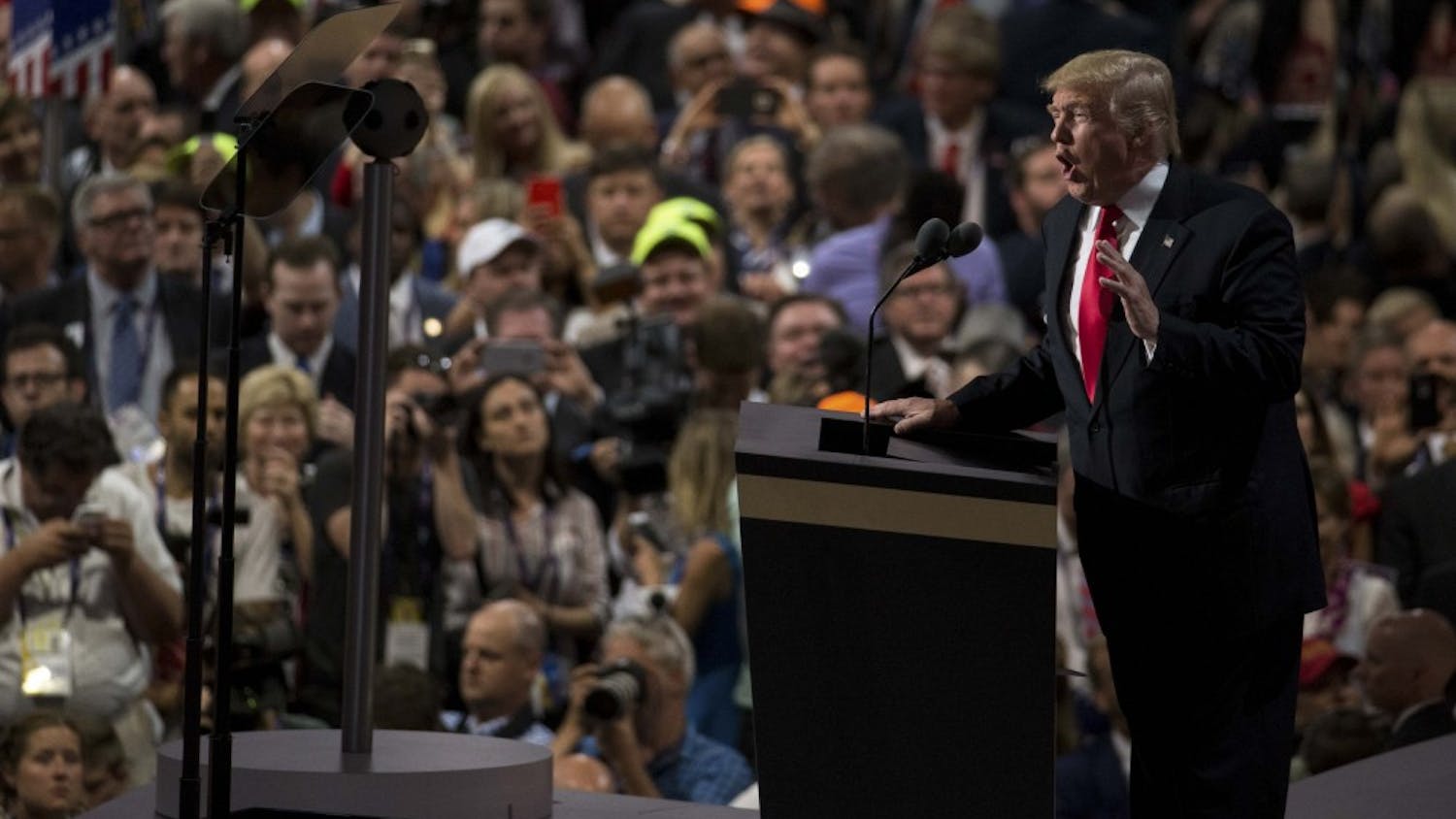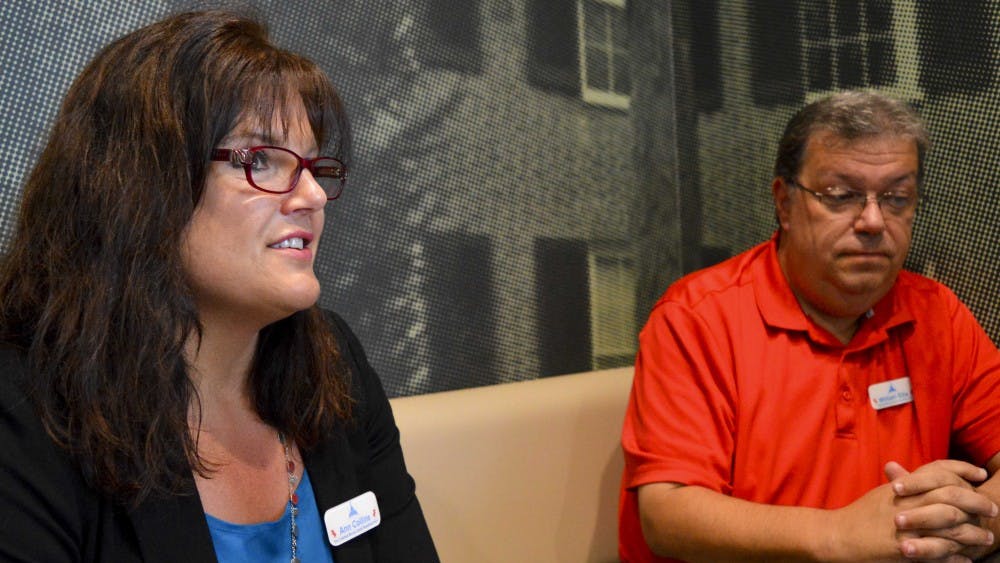While running for his fourth term as the 8th District Congressional Representative, John Hostettler is relying on his voting record to distinguish him from novice Democratic challenger, Dr. Paul Perry. But in a district with the nationally recognized moniker, "The Bloody Eighth," he also knows resting on one's laurels isn't always enough to ensure victory.\nHostettler said he'll continue to do what the primary focus of his last six years has been -- talking to voters and representing the interests of southwestern Indiana in Congress.\nHostettler, 39, was first elected during the 1994 "Republican Revolution," when the GOP gained control of the House of Representatives and the Senate for the first time in decades. In the six years since his ascent to public office, Hostettler has witnessed votes pass the House floor on issues ranging from the federal budget -- twice resulting in a government shutdown -- to gun control and veterans' benefits.\nHis record of leadership is his main campaigning point in this race. Perry, who has been using health care as his predominant issue, has never held public office.\nAnd that's what Hostettler said he is banking on to bring him another victory.\n"There's more than one issue when you get to Congress," he said. "Paul Perry believes there is (only) one issue. He has said what he believes personally, but I have every reason to believe he will compromise those positions so he can push his own agenda on health care."\nHostettler has not been a strict party-line voter in his tenure. He most recently bucked the party majority on the Violence Against Women Act, which attracted only three "no" votes in the entire House. He told the Bloomington Herald-Times his vote was not against women, but against the federal government increasing its role in crime prevention. \n"It's a slippery slope that, arguably, we continue down, but one I think is not in the best interest of solving the problem," he said. "Nor is it consistent with hundreds of years of criminal jurisdiction in this country."\nJunior Anne Scuffham, the president of the IU College Republicans, said Republican politics often come into conflict with Hostettler's own views on federalism.\n"I think IU students tend to look at some of his votes as too conservative," she said. "The thing to understand is he's a strict constitutionalist. He really takes the issues that are before him and dissects them very locally. He's voted against the party line a lot of the time if he thinks there's something we don't need."\nAnother area in which Hostettler stands apart from his peers is in campaign finance. He is one of only 28 representatives in the House who refuses campaign donations from Political Action Groups. PACs are regular political contributors, and an oft-heard criticism of their financial support is the alleged influence they have over Congressional votes. But Hostettler said his stance allows him to be the fairest legislator possible.\n"It allows me to concentrate on the substance of issues and does not allow a potential opponent to talk about (possible) financial incentives," he said.\nHostettler also said funding from special-interest groups has led to the end of several congressional careers since the Republicans took control of Congress.\n"What has happened over the past six years is we have seen tremendous turnovers in the House, and it happened as a result of the voting booth," he said. "Representatives are supposed to represent (voters) on issues that directly affect their lives, not (PAC) issues."\nHostettler said his greatest sense of accomplishment comes from the balancing of the federal budget while cutting taxes. He said he has great pride in the Republican Party's overall "fiscal responsibility" in budgetary matters.\n"For the first time since 1960, we'll (balance the federal budget) without spending a penny of the Social Security surplus," he said.\nThis fiscal policy is what Hostettler said will give future generations the stability they need to live productive lives.\n"I think the main issue students are most concerned about is, after they get a great education, are there going to be economic opportunities … to capitalize on their education," he said. "It can't happen if we decide to put more of our trust in government solutions in Washington"
Bloody Battle
Candidates vie for office in 8th District
Get stories like this in your inbox
Subscribe





